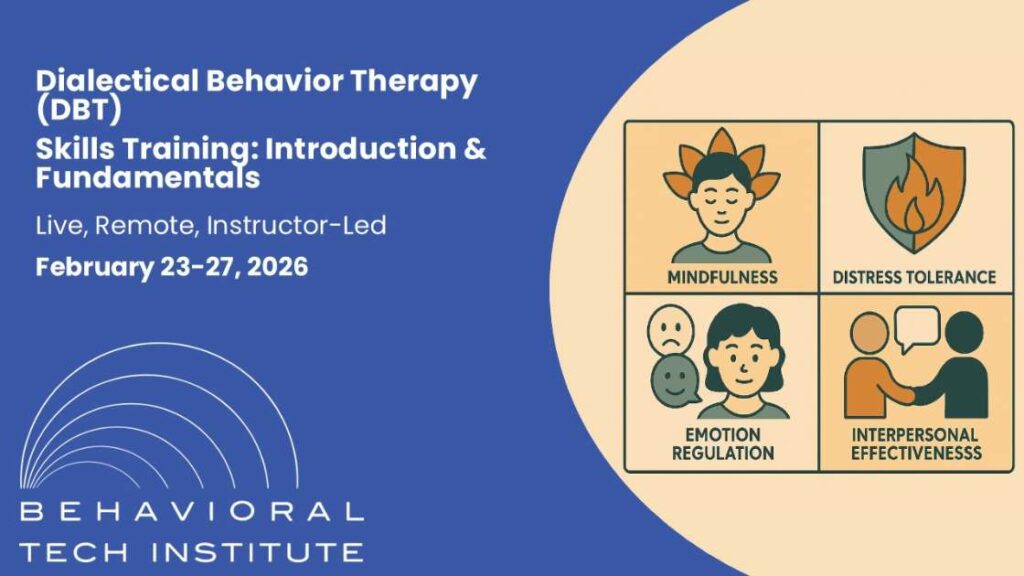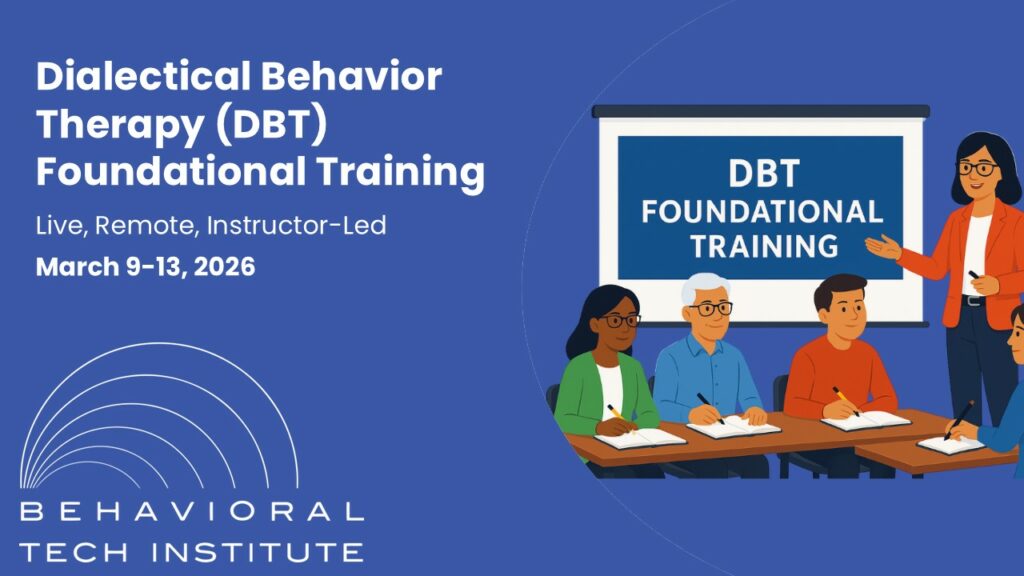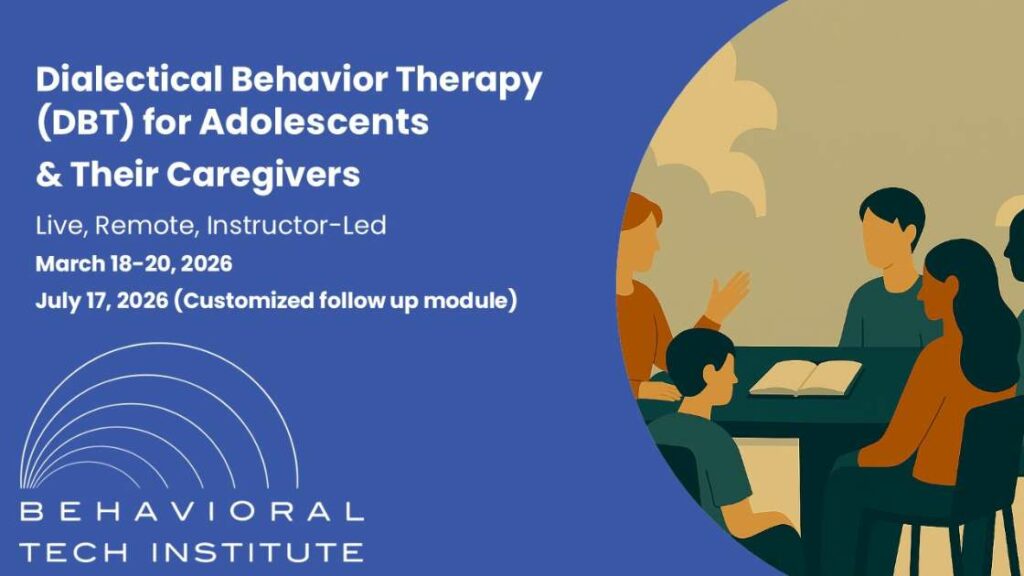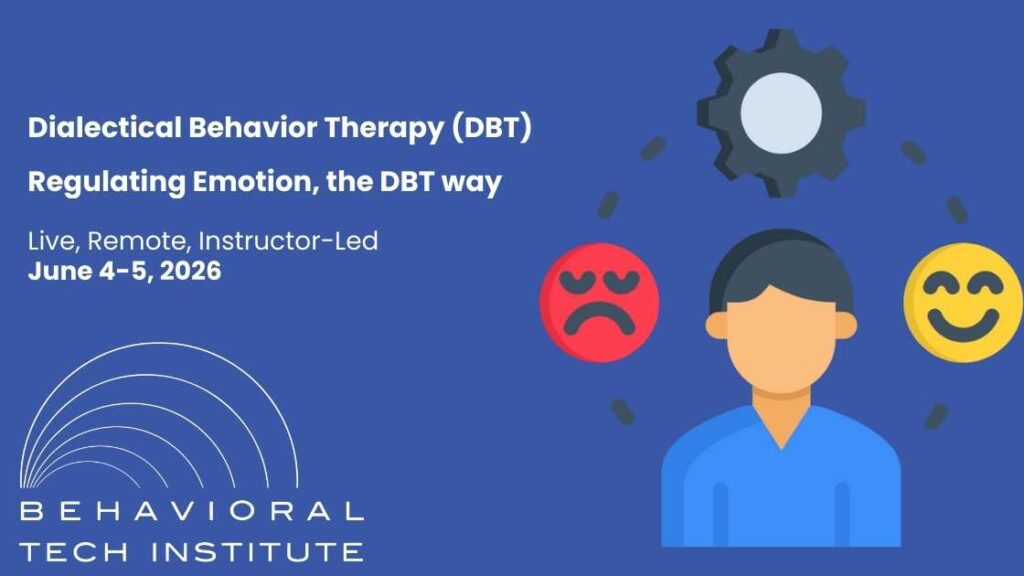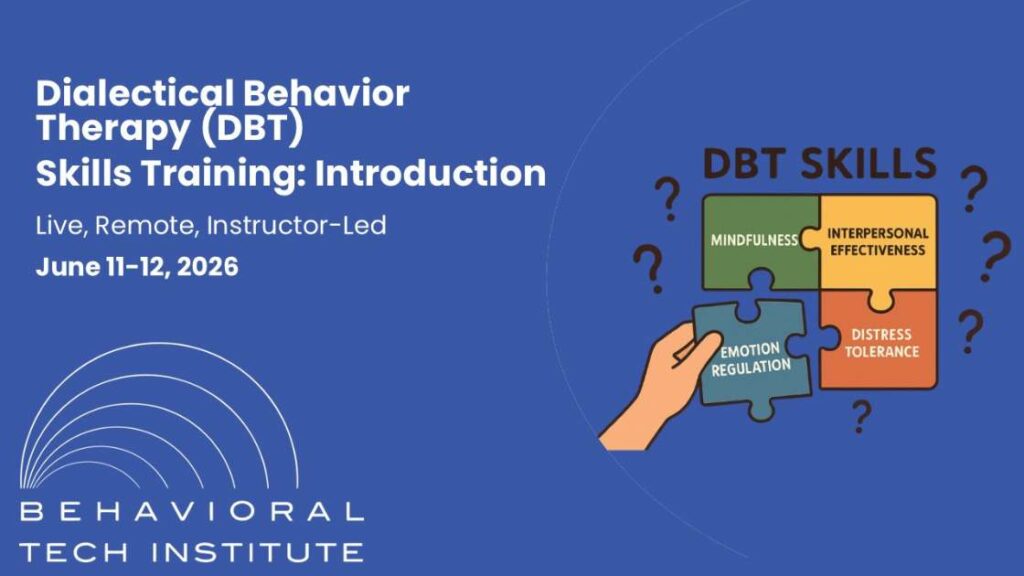The World’s Leading Organization of Expert Dialectical Behavior Therapy Trainers
Online Foundational | Self-Paced | Live Q&A Sessions
Why Work With Behavioral Tech Institute?
We have been empowering people to experience lives worth living through collaborative partnerships across the globe that facilitate evidence-based interventions for those who need them.
Skills Training
Skills training is frequently taught in groups during weekly sessions, and the full skills curriculum runs for 24 weeks.
In The Moment Coaching
Dialectical Behavior Therapy uses phone coaching to provide responsive support. Learn how to effectively utilize technology to support your DBT practice.
Consultation Team for Therapists
The DBT consultation team is essential to help therapists adhere with fidelity to the model and sustain their motivation to treat. Train with your team or train as an individual.
The Science Behind DBT
Dialectical Behavior Therapy is an evidence-based therapy. Learn more about how a scientific stance keeps the field of DBT advancing forward.


